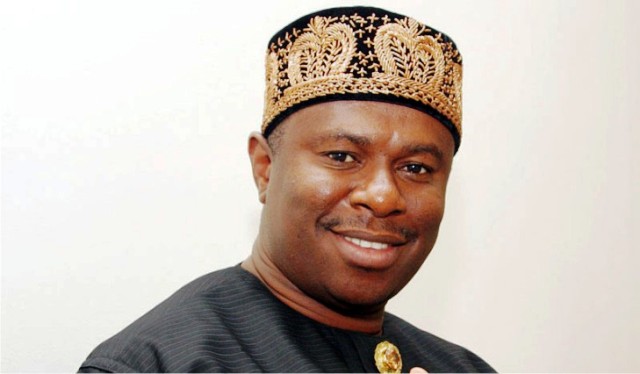Business
NIMASA Seeks Solutions To Africa’s Maritime Challenges

The Director-General of Nigerian Maritime Administration and Safety Agency, (NIMASA), Dr Dakuku Peterside, has called for concerted, cooperative and collaborative efforts at tackling Africa’s maritime administration challenges.
Peterside said this in Abuja yesterday in his welcome address at the opening of the 3rd Conference of Association of African Maritime Administrations (AAMA).
According to him, Nigeria has waited with bated breath for this day and year to host this all important gathering.
“We are particularly delighted that this conference, the third in the series after the first in Mombasa, Kenya and the second in Sandton, South Africa is holding on our shores.
“Nigeria’s place in the maritime world is not only deserved, it is common knowledge.
“It (Nigeria) is special in the maritime community in Africa for a number of reasons,’’ the director-general said.
He said that Nigeria accounted for over 60 per cent of the total sea-borne traffic in volume and value in West and Central African region.
“As the sixth largest OPEC exporting country, we contribute significantly to the global energy supply and wet cargo traffic.
“My country’s signature adorns all continental maritime initiatives and charters that seek to promote the development of Africa,’’ Peterside said.
Peterside told the conference participants that Nigeria was geo-strategically located as a major littoral state in the Gulf of Guinea.
The director general added that by all estimations, Nigeria had become a leader high on the crest of maritime nations and determined to advance African maritime prosperity.
He added that only recently to further reinforce the critical role maritime could play in the development of Africa, the African Union (AU) Special Summit of Heads of Government on Maritime Security, Safety and Development in Lome, Togo on October 15, 2016 aligned with Nigeria.
“They adopted a Charter on Maritime Security, Safety and Development aimed at making Africa’s maritime space the key driver of the continent’s socio-economic development.
“This document was endorsed by 43 out of 54 African nations.
“We have a collective responsibility to promote new awareness and appreciation of the inevitable role maritime transport and blue economy can play as an enabler of the economic development of our continents.
“Africa is looking up to this conference and we cannot afford to disappoint our people,’’ the director-general said.
The Secretary-General of the International Maritime Organisation (IMO), Mr Kitack Lim, said AAMA should not relent in its determination to increase Africa’s share of global investments in the maritime sector.
Lim, who was represented by an official of the IMO, Mr William Azu, said that the maritime sector provided raw materials, foods, employment and transportation of 80 per cent of global trade.
According to him, many industries rely entirely on access to ocean resources, services and trade; and all these come into what one could call the “blue economy’’.
The IMO chief said the organisation had laid out elaborate plans to celebrate the 2017 African Day of the Seas and Oceans.
The theme of the conference which ends on April 21 today is: “Sustainable Use of Africa’s Oceans and Seas’’.
Business
Agency Gives Insight Into Its Inspection, Monitoring Operations

Business
BVN Enrolments Rise 6% To 67.8m In 2025 — NIBSS

The Nigeria Inter-Bank Settlement System (NIBSS) has said that Bank Verification Number (BVN) enrolments rose by 6.8 per cent year-on-year to 67.8 million as at December 2025, up from 63.5 million recorded in the corresponding period of 2024.
In a statement published on its website, NIBSS attributed the growth to stronger policy enforcement by the Central Bank of Nigeria (CBN) and the expansion of diaspora enrolment initiatives.
NIBSS noted that the expansion reinforces the BVN system’s central role in Nigeria’s financial inclusion drive and digital identity framework.
Another major driver, the statement said, was the rollout of the Non-Resident Bank Verification Number (NRBVN) initiative, which allows Nigerians in the diaspora to obtain a BVN remotely without physical presence in the country.
A five-year analysis by NIBSS showed consistent growth in BVN enrolments, rising from 51.9 million in 2021 to 56.0 million in 2022, 60.1 million in 2023, 63.5 million in 2024 and 67.8 million by December 2025. The steady increase reflects stronger compliance with biometric identity requirements and improved coverage of the national banking identity system.
However, NIBSS noted that BVN enrolments still lag the total number of active bank accounts, which exceeded 320 million as of March 2025.
The gap, it explained, is largely due to multiple bank accounts linked to single BVNs, as well as customers yet to complete enrolment, despite the progress recorded.

